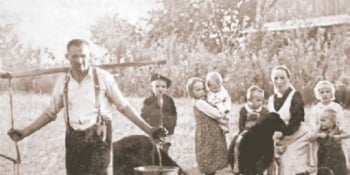Published: 21.09.2017

At the OSCE conference in Warsaw, the Ordo Iuris Institute organized a panel devoted to assessment of the functioning of the Norwegian Child Welfare Agency Barnevernet. Ordo Iuris experts pointed out the need to take steps to protect Norwegians seeking shelter in Poland as well as systemic support for Poles living in Norway today.
The panel entitled “Child protection services - right to respect for family life, the right to a fair trial and rights of the child” was organized shortly after lawyers of Ordo Juris submitted an application for asylum for a Norwegian woman who along with her eight-month daughter fled to Poland escaping the actions of Barnevernet.
Jerzy Kwaśniewski, Esq., representing the woman and her child, presented the assumptions of the report, indicating systemic violations of international guarantees of respect for family life by Norwegian state rules. He pointed to the danger of i.a. questioning the importance of kinship in child custody proceedings. He also mentioned typical pathologies of the system, which include limiting the child's contact with parents to 3-6 short meetings a year, and separating grandparents and siblings from the child in foster care. Breaking family ties and sporadic contacts naturally result in obliteration of the emotional bond of a child with his or her biological family, which in turn in the light of Norwegian court practice is the premise of ultimate breakdown of a child's relationship with the family. Kwaśniewski quoted Norwegian experts, including government experts, emphasising contradictions of legal regulations with, among others, the European Convention on Human Rights.
Filip Wołoszczak, Esq., from the department of Process Intervention at Ordo Juris discussed the proceedings of Barnevernet analysed by the Institute, pointing to their common features, such as sudden taking the child away, lengthy proceedings of Barnevernet and the courts, ultimate refusal to give the child to the parents due to his or her identified attachment to foster parents. The lawyer also pointed to typical conditions of depriving parents of custody, such as chronic fatigue, Paracetamol dependence, or even second pregnancy of the mother.
Karina Walinowicz, analyst of Ordo Iuris, discussed nine cases currently pending before the European Court of Human Rights against Norway concerning operation of the Barnevernet system. The proceedings show the full spectrum of Norwegian society - half of them concern native Norwegians, half of them immigrants from all over the world, including a Polish family.
The international conference “Human Dimension Implementation Meeting” of the Organization for Security and Cooperation in Europe is held in Warsaw every year and lasts for two weeks, during which government delegations and representatives of non-governmental organizations meet to discuss the state of human rights and freedoms in the world. Ordo Iuris has participated in the event for the third time.

03.04.2025
• The Advocate General of the Court of Justice of the European Union (CJEU) has issued an opinion in a case involving a same-sex couple’s demand for their German marriage to be recognized as a marriage in Poland.

24.03.2025
On the 81st anniversary of the martyrdom of the Ulma family and the Jews they sheltered—who died at the hands of the German occupiers of Poland—the Ordo Iuris Institute is releasing a special commemorative infographic.

21.03.2025
• An Iranian national granted asylum in Hungary requested that her registered female gender be changed to male, indicating that she is transgender. Her request was denied due to the lack of surgical gender reassignment.

• The 69th session of the United Nations Commission on the Status of Women (CSW) is taking place in New York from March 10 to 21. This year’s theme marks the 30th anniversary of the adoption of the Beijing Declaration.